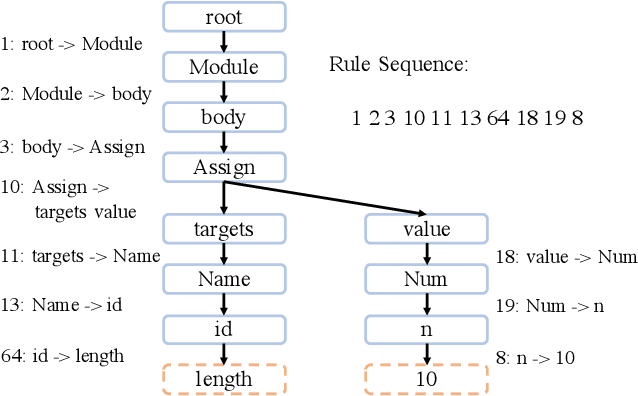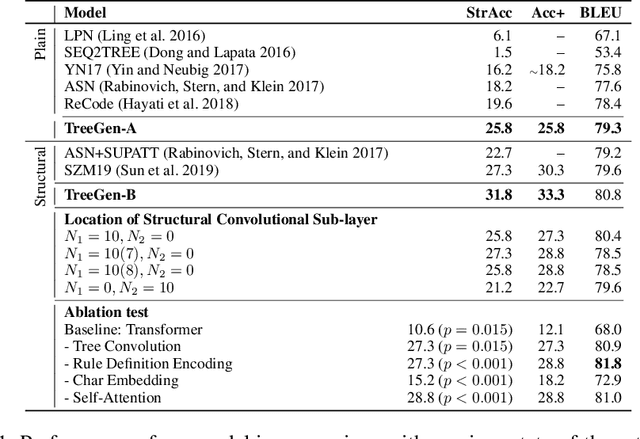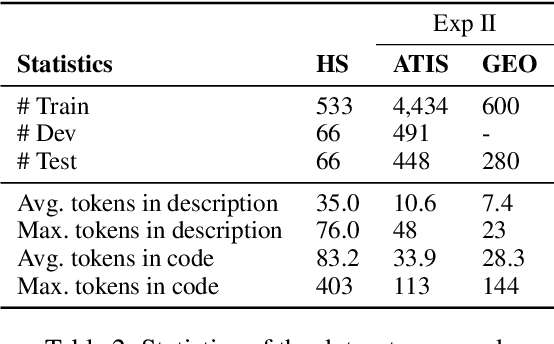TreeGen: A Tree-Based Transformer Architecture for Code Generation
Paper and Code
Nov 28, 2019



A code generation system generates programming language code based on an input natural language description. State-of-the-art approaches rely on neural networks for code generation. However, these code generators suffer from two problems. One is the long dependency problem, where a code element often depends on another far-away code element. A variable reference, for example, depends on its definition, which may appear quite a few lines before. The other problem is structure modeling, as programs contain rich structural information. In this paper, we propose a novel tree-based neural architecture, TreeGen, for code generation. TreeGen uses the attention mechanism of Transformers to alleviate the long-dependency problem, and introduces a novel AST reader (encoder) to incorporate grammar rules and AST structures into the network. We evaluated TreeGen on a Python benchmark, HearthStone, and two semantic parsing benchmarks, ATIS and GEO. TreeGen outperformed the previous state-of-the-art approach by 4.5 percentage points on HearthStone, and achieved the best accuracy among neural network-based approaches on ATIS (89.1%) and GEO (89.6%). We also conducted an ablation test to better understand each component of our model.
 Add to Chrome
Add to Chrome Add to Firefox
Add to Firefox Add to Edge
Add to Edge